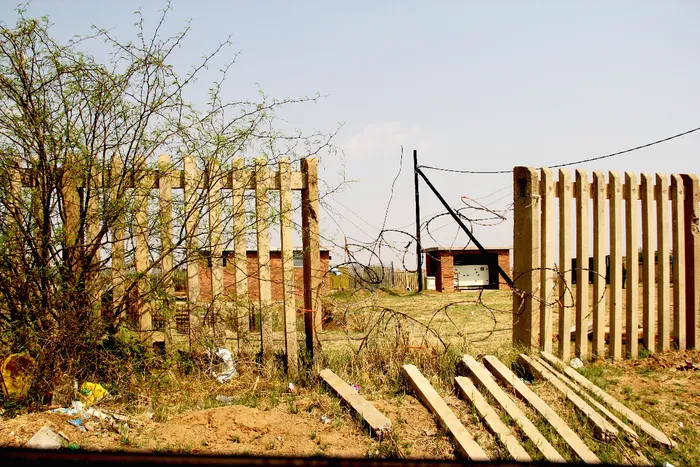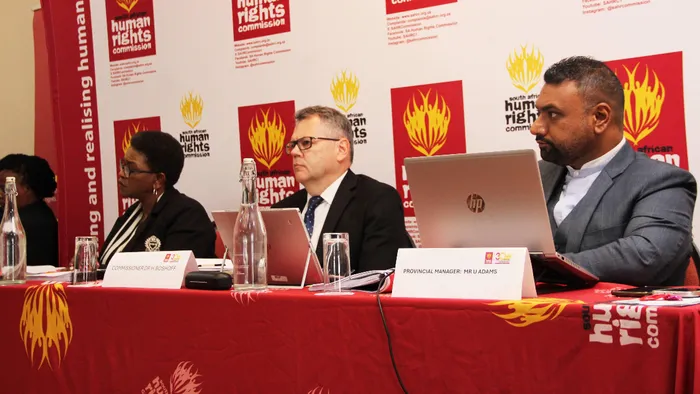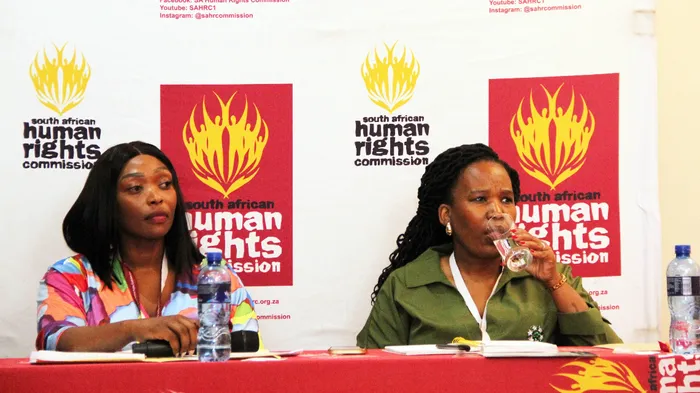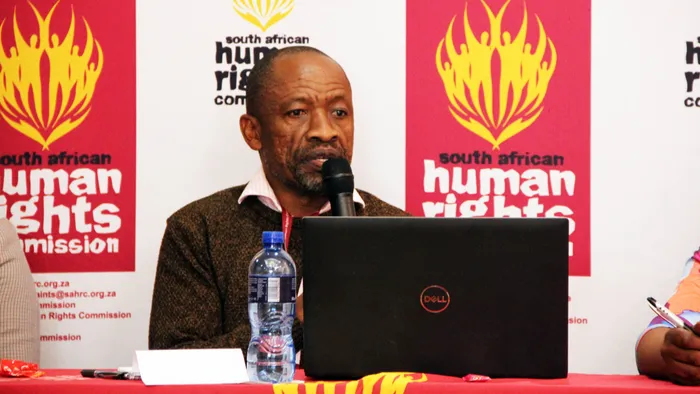Human Rights Commission blasts Sol Plaatje over service delivery ‘collapse’

A pump station in Roodepan that has fallen into disrepair.
Image: Sandi Kwon Hoo / DFA
SOL PLAATJE municipal officials were lambasted by the South African Human Rights Commission (SAHRC) for allowing the city to deteriorate into a state of neglect, where residents were left to “live like animals” in sewage and without access to clean water.
The SAHRC held an inquiry into service delivery failures at Northern Cape municipalities in Kimberley this week.
SAHRC commissioner Dr Henk Boshoff said that political turmoil at the Sol Plaatje Municipality was hampering service delivery and refused to accept the “feeble excuses” offered by officials.
“Council should be dissolved. Good grief, nothing is being done about the mess while people are living like animals and human rights are being violated. This is an absolute embarrassment for Sol Plaatje Local Municipality. Councillors and the administration do not know what they are doing. Things are ‘fixed’ by replacing top management. What’s happening is nonsense and unacceptable,” he said.
He added that officials had misled the commission and advised those who were not interested in serving the community to vacate office.
“The poor and marginalised are the worst affected. We simply cannot continue like this. Sanitation is a disaster. It is not enough to have a plan without any measurable achievements. Emergency deviations can be approved for sewage spillages in White City, Platfontein, Hillcrest and Homevale.”
Boshoff pointed out that, according to the auditor-general, the Carters Ridge, Legaeng and Eagle Street sewage pump station upgrades and the Lerato Park electrification project remained incomplete due to poor project management.

SAHRC commissioners Elspeth Khwinana, Dr Henk Boshoff and Uzair Adams.
Image: Sandi Kwon Hoo / DFA
SAHRC provincial manager Uzair Adams indicated that Sol Plaatje Municipality was classified as a high risk due to its sewerage problems, while 95 percent of the population did not have access to a reliable water supply.
SAHRC commissioner Elspeth Nomahlubi Khwinana said officials were ill-prepared and disregarded the dignity of citizens.
“Would you allow your family members to live like the residents of Platfontein and White City?” she asked.
She pointed out that the temporary acting municipal manager was merely directing all questions to the technical manager and chief financial officer (CFO), while she was representing the accounting officer of the municipality.
“You cannot wear the robe without educating yourself and being accountable. The municipal manager must know what the technical manager and CFO are doing,” Khwinana remarked.

The temporary acting municipal manager Rene Godsson and chief financial officer Lehlohonolo Rapodile.
Image: Sandi Kwon Hoo / DFA
The temporary acting municipal manager, Rene Godsson — standing in for acting municipal manager Busisiwe Mgaguli, who is attending training this week — committed to submitting a written report to the SAHRC by October 10 on the sewage spillages, as it had financial implications.
She explained that she was the Human Resources manager who had “stepped in” for Mgaguli, who is acting while municipal manager Thapelo Matlala is on precautionary suspension.
“We understand the challenges,” Godsson said.
Sol Plaatje chief financial officer Lehlohonolo Rapodile was unable to provide the rate at which the municipality purchases electricity from Eskom and sells it to ratepayers.
The executive director of Infrastructure and Services, Walter Jood, explained that the city’s entire asbestos pipe network was collapsing and needed to be replaced.
“Once the asbestos pipes are addressed, it will improve the Green Drop rating. We are limited by a shortage of funds and staff. We have applied to the Department of Water and Sanitation for assistance. We will need a huge capital investment and have to deal with backlogs,” he said.
He added that the R2.5 billion Budget Facility for Infrastructure (BFI) fund was only allocated to improve the bulk water supply from Riverton to Kimberley, where the dilapidated water treatment plants were being upgraded.
Jood said that R106 million was required to get one of the plants at the Homevale wastewater treatment works — damaged by vandalism and theft — functioning again.
He stated that about R100,000 per month was being spent on outsourcing water tankers to distribute water to informal settlements in Ritchie.
“The service provider obtains water from the water treatment plant. There used to be water shedding every day in Kimberley, but currently there is a 24/7 supply, where you can drink water from the tap. Water losses have improved, and water pressure valves will be installed,” he said.
The officials committed to providing the commission with a list of reports and written explanations by October 17.

The executive director of Infrastructure and Services, Walter Jood.
Image: Sandi Kwon Hoo / DFA
The complaints
Apart from several written submissions, DA Member of Parliament Dr Delmaine Christians told the commission that 26 families had lost their homes and belongings in 2021 due to a sewage spill catastrophe in White City, Roodepan.
“The stench is soaked into the walls and floors, and the homes are uninhabitable. Most of the houses have been broken, vandalised or demolished. The Roodepan pump station is located a few metres away and is malfunctioning. Around 50 to 70 sinkholes are threatening the safety of homes,” she said.
She added that no action had been taken despite criminal charges being laid, petitions submitted, motions to the National Council of Provinces, and engagements with multiple government departments over the environmental disaster, as well as a court order obtained by landowner Brenda Booth regarding sewage spillages.
“Hillcrest, the R31, N12 and Platfontein are affected by raw effluent as the Gogga, Legaeng and Eagle Street pump stations are dysfunctional, despite more than R50 million having been spent on upgrades,” she said.
Platfontein resident Markus Jetembo stated that the lake of water mixed with sewage along the R31, due to the malfunctioning Gogga pump station, had compromised the quality of agricultural products and livestock.
“We are billed while we do not have any services, including sanitation or refuse removal. Residents line toilet pots with bags, and about once a month the municipality comes to empty them. If it overflows, residents discard faeces and urine in the veld. Rubbish is set alight and thrown in the veld,” he said.